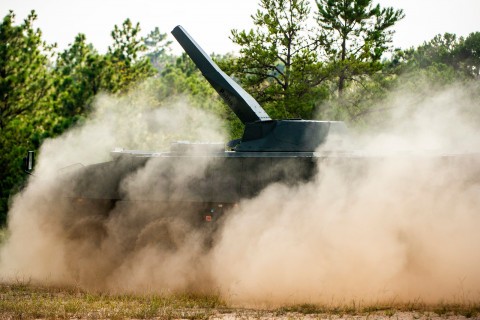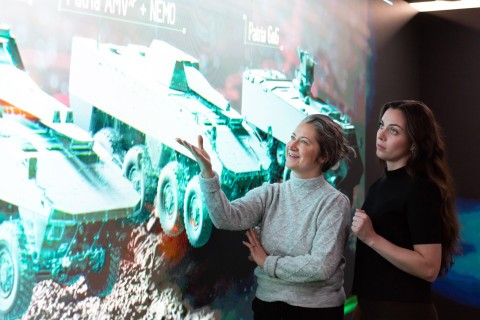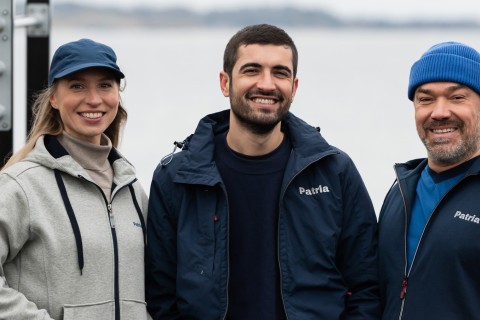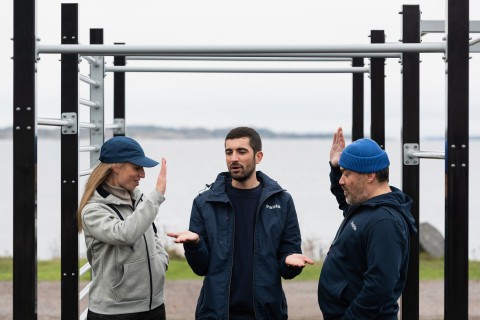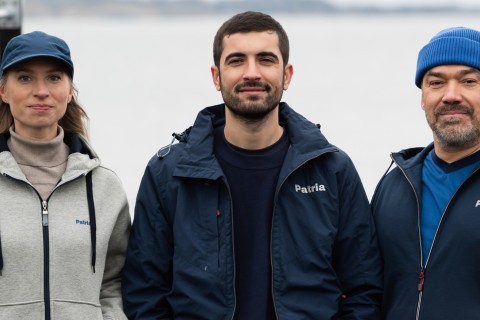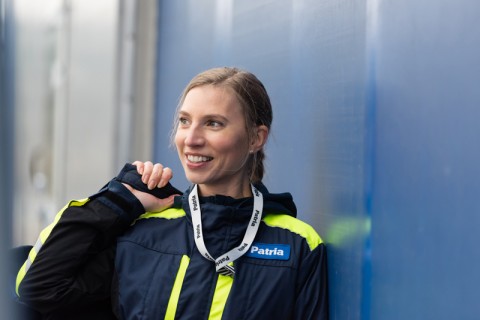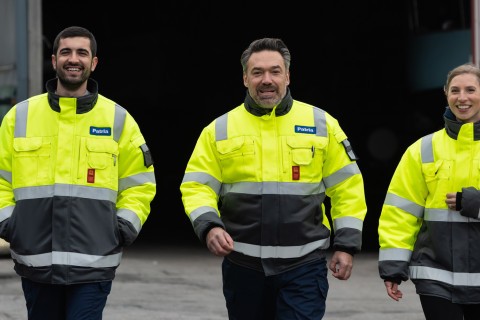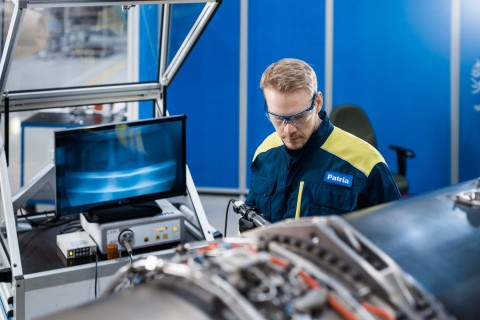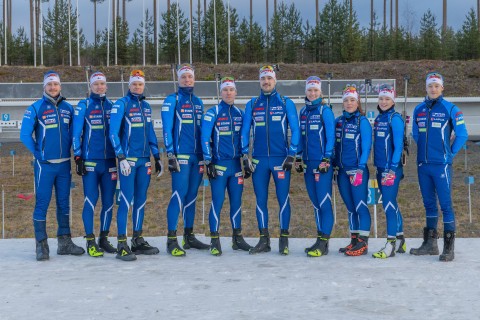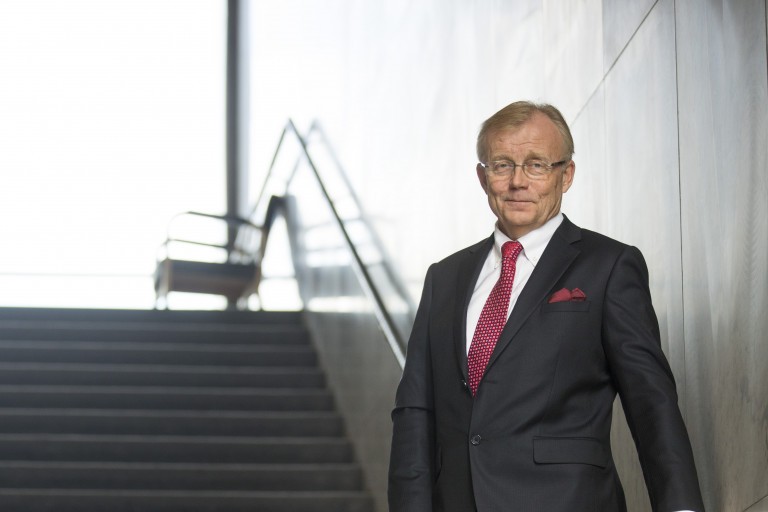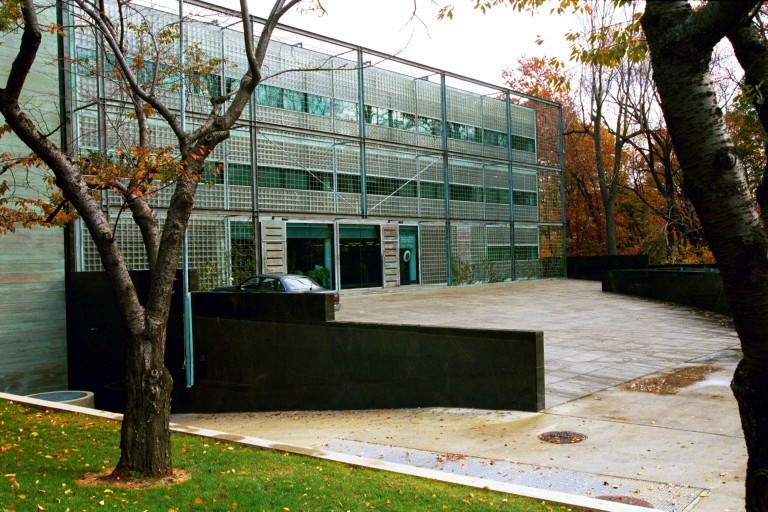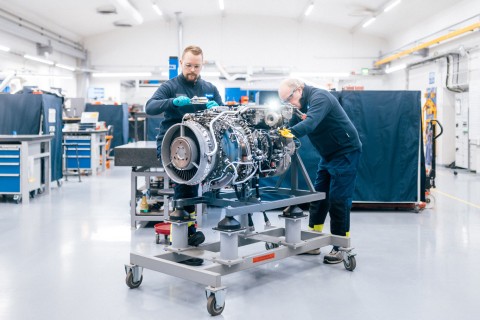
21.3.2014
”The Get Moving project, organised by the Finnish Military Sport Federation and supported by Patria, has encouraged sports club activities among conscripts over the last three years”, says Matti Santtila, Chief of Physical Training and Sport, Finnish Defence Forces.
These clubs offer invaluable positive experiences to young people during their military service. And since most conscripts count leisure time activities as part of their military service experience, the benefits will also be reaped by the Finnish Defence Forces. Although Finnish conscripts are generally in good physical condition, as many as a quarter of young men entering military service are not physically fit, and this figure is growing. Muscular endurance tests and the Cooper test, which rates a person as unfit if he or she cannot run 2,200 metres in 12 minutes, are used to measure the physical condition of conscripts. From the beginning of the 1980s to 2000, the national average result for conscripts fell by 350 metres and has remained at 2,450 metres since then. During military service, this result improves by 200 metres on average and muscular endurance increases from satisfactory to good. Although the average weight of conscripts does not change during military service, studies have shown that fat is converted into muscle. From the perspective of military service, being unfit increases the risk of interrupting the conscription period and sustaining musculoskeletal injuries, since enormous amounts of physical activity are involved.
According to our calculations, the amount of physical activity performed by a physically unfit and sedentary young person during basic training corresponds to the training regime of a professional cyclist, even if the intensity is much lower. The change from civilian life is massive for a young person unused to exercise, but precisely these persons gain the most health benefits from military service. Compulsory military service is short in duration, and the task of the Finnish Defence Forces is to produce good reservists. For this reason, instead of whipping conscripts into shape it is more important to focus on changing attitudes so that conscripts will continue exercising after being discharged. As a by-product, this would also lead to improvements in national health. The Get Moving project has achieved its objectives: exercise clubs have sprung up at every unit training conscripts, and these clubs offer more high-quality and a wider range of activities than before. This is indicated by the rise in positive feedback received on exercise in the final survey completed by conscripts upon their discharge.
A long-term study shows that the most recently discharged class of conscripts gave the best feedback to date. These results should interest every unit commander, since the credibility and future of the entire conscription system largely rests on how conscripts experience their service and on the feedback they give. The greatest challenge for the project has been ensuring uniform quality since, between units, exercise clubs vary in quality from excellent to satisfactory. Another challenge lies in the lack of time available for instructors and personnel. Patria has made a significant contribution to the project. It has been fantastic to witness how companies are willing to invest in promoting the well-being of young people. This represents a common effort by mothers and fathers, the military and municipalities, none of whom can solve the problem single-handedly. The last three years have seen a concrete change in the most important area: attitudes. I sincerely hope that this project will continue. Future objectives could include boosting quality by enhancing the training of conscript club instructors, improving the contents of exercise programmes and developing new services that interest young people.
This article was published in the Patria magazine in December 2013 by Matti Santtila, Lieutenant Colonel, PhD. Chief of Physical Training and Sport, Finnish Defence Forces
What did you like about the article?
Thank you for your opinion! You can share the article on social media using the buttons below:
